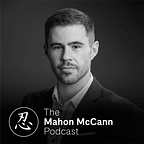“Morality begins in paying attention to what you don't want to pay attention to but should attend too.”
Jordan Peterson.
In my recent conversation with John Verveake, Canadian Cognitive Scientist and creator of the Awakening From The Meaning Crisis Series, we discussed how the conditions of the loss of wisdom and spiritual traditions, that organized individuals' attention previously, have created the conditions for an attentional crisis. (Not to mention the fact that we've developed the most advanced technologies possible for capturing people's attention). This attentional crisis has created the need for changing our practices to cultivate our abilities to control our attention and guide our own development, to prevent it from being stolen and added to corporations' bottom lines.
That’s what I’m going to look at in this essay, what is attention? How does it function? How can we control our own better?
How Does Attention Function?
There are two poles to attention; salience and prioritization.
Salience describes how prominent or emotionally striking something is, in other words, how something stands out against the background and becomes obvious to us. How things are obvious to us is actually not so obvious!
Salience is, Bottom-up and involuntary. The phenomenology of salience will make more sense if you think about it like a video game. In a video game, objects or paths that are desirable, are ‘lit up’ in a different, mostly lighter or colourful way, to indicate non-verballing that they signify value and should be pursued. Our bodies and biology employ the same strategy to guide us toward what is considered valuable i.e When you're hungry, food looks really good, when you're thirsty, water looks really good etc This type of unconscious salience direction is the basic cable philosophy of being a human being - we head towards pleasure, and we avoid pain. It's the sort of standard animal package, of operating in complex environments and salience plays a big role in mediating that process.
What is salient to us indicates reward and is dopaminergicly mediated. Dopamine is the molecule of more, It's the molecule of pursuit, drive, and motivation. Interestly, what happens with people with ADHD who can’t pay attention for a sufficient amount of time, is doctors treat them with Ritalin. Ritalin is an amphetamine and this increases dopamine because dopamine is key in being able to focus. It helps us pursue particular goals, and with a low level of dopamine, you're unmotivated and therefore un-focused. There are a lot of studies with rats on Dopamine and a rat with no dopamine won't even eat food if it's put down beside it or close by. Whereas a rat with a healthy supply of dopamine will walk over electric platforms or through a maze. In other words, exert a lot of effort to achieve the reward. And so if you’re dopamine starved, your attention is not gonna be very good.
The other pole of attention is Prioritization. Prioritisation is the action or process of deciding the relative importance or urgency of a thing or things. In other words, prioritisation functions by values, by valuing one thing over another. When you selectively and consciously pay attention, there is a cost, which is why we use that metaphor. To pay attention to one thing is to ignore everything else and not to mention that this is also quite psycho-physiological costly. This means we are always trading off between prioritisation and salience. Life is much easier when you find the right things salient and don’t have to consciously prioritise or re-prioritise (but life is never that simply).
This brings us to the problem of attention, which is summed up in John Vervaeke’s theory of relevance realisation. The issue is that there are simply too many things to pay attention to in our environment at one time? There are too many things to pay attention to in our own memory, in the immediate environment and even in our own body - You could pay attention to your left shoulder? To your breathing? To your right foot? To left foot? But very quickly that will become too much! So it turns out we actually function intelligently by ignoring a huge amount of irrelevant information and zeroing in on relevant information quickly! But how can we do that when it’s impossible to consider all of the options? If we try to computationally consider every possible outcome of our behaviour and shift of attention, pretty soon we will blow up (metaphorically speaking). So humans engage in hyperbolic discounting, we ignore large swaths of information that are irrelevant to our goals and goal-directed behaviour. In a person who is suffering from anxiety or paralysis by analysis, they will consider too much information that is irrelevant and struggle to prioritise what matters most. This seems to be the function of the default mode network in the brain, to actually screen out information, and a lot of current research is suggesting things like psychedelics actually open up this screening process to bring more information into consciousness than usual.
The problem of attention means that the search space is too large to search algorithmically and results in combinatorial explosion. We solve this problem with certain heuristics, which is an approach to problem-solving or self-discovery using 'a calculated guess' derived from previous experiences. There is much more complexity behind these ideas and if you are really interested in the scientific depths behind these insights I recommend checking out the relevance realisation paper here, and to be clear, this is my interpretation and understanding of John’s work and in no way reflective of his thoughts.
For the purposes of this argument and understanding attention, we simply need to know that the machinery that makes us adaptively intelligent, various cognitive and perceptual heuristics, also makes us perennially self-deceptive and self-destructive. In other words, we often find the wrong thing salient or relevant. And so we have a problem to deal with, we think bad things are good and good things are bad.
The Perennial Problem of Attentional Control.
So what the hell do we do? Thankfully, philosophers kinda knew about this perennial problem quite some time ago, and it is the meaning behind Socrates' statement of,
“I know that I know nothing”, the first principle being, epistemic humility and that epistemic humility and “learned ignorance” should prompt one to be more oriented toward searching for the truth and less oriented toward thinking you already have is the truth! In other words, you pay attention to what you are paying attention to and reflexively self-correct and adapt, and the hope is you get pretty good at it, something like driving a car, and you become a good steward of your own self-development (that’s the hope anyway)!
The argument that I'm making here is that attention functions by developing and develops by functioning and thus we are always training our salience and re-prioritising and thus we have a responsibility to get our attention going in the right direction! Salience is trained over time, so the more you act on a rewarding stimulus, the more you reinforce in your brain that stimuli and the behaviour you used to pursue it, are rewarding and worth doing again! In other words, it becomes a habit, and that habit is hard to break because you become wired towards the behaviour that is rewarding and that can get you into what John describes as ‘reciprocal narrowing’, you get funnelled into a tighter and tighter pursuit of this one good.
The most obvious example of this problem is addiction. In addiction, one good, an addictive substance let's say, becomes salient beyond all others! And shines with a mythological light that can so compelling, people destroy themselves pursuing it. But what is necessary to begin treating the addiction is a meta-cognitive awareness, that salience is information, and not direction. Developing meta-cognitive awareness of salience is like realising you are wearing a pair of glasses with a particular lens on them and then cultivating the ability to take those glasses off and look at them, evaluate if they are appropriate or not for the circumstances? And select a different lens, if not. The opposite of reciprocal narrowing is reciprocal opening, which is kind of like finding philosophical joy and happiness in everything or in other words a positive feedback loop. My rather bold suggestion is that cultivating this meta-cognitive awareness of salience is the first step to getting there and is also something we knew as wisdom.
Science as we know it will have to change to accommodate this truth because one of the things that have kept religion and science apart is the fact/value distinction. The fact/value distinction is that there is an epistemological difference between descriptive statements of fact and evaluative statements of value. Attention messes this up because the facts of attention are values. It is a fact that attention functions consciously by evaluating the worth of one stimulus over another - value judgements.
Carl Jung saw attention as a kind of worship, the more attention you paid to something the more you valued it and what you valued most had a quasi-religious status in your life. He saw this in addicts as well and described their problem was really a spiritual problem, and that an alcoholic was addicted to a certain spirit that alcohol brought into their life and that this spirit had to be replaced with another spirit. Carl Jung was actually the founding inspiration for Alcoholics Anonymous, which is the most successful alcoholism treatment ever invented, and you can read his letters with the founder Bill Wilson here.
Jung looked at the unconscious forces acting on our attention, what we find salient involuntarily, as the Polytheistic world of the Gods. The sum total of these gods’s being the whole panoply of forces that can act on our attention. Interestingly, the Latin word for God or deity, Deus is descended from Proto-Indo-European *deiwos, or "shining". Jung thought for ancient people paying attention to what you should pay attention to was even harder than for us! We’ve benefitted from thousands of years of cultural evolution and institutions that they didn’t have. However, they figured out was that through rituals and stories like myths we could gain influence over our attention and hence our destiny.
For example, If you think about Ares or Mars, The Greek God of Anger. There is plenty of research on anger in Cognitive Behavioural psychology, that anger draws one’s attention to certain features that are self-reinforcing. In other words, you ignore details that might discomfort your anger and focus on details that make you even angrier in the moment! And that this causes a feedback loop that can lead to some really bad stuff as we’ve seen throughout history. Realising that you are under the influence of a powerful emotion (developing a meta-cognitive awareness) can give you gain some control over the emotion. This is done in therapy in naming emotions, but it was also happening in ancient people through personification. It’s a lot easier to negotiate with a person than an abstract idea, particularly when you are not super comfortable with abstract ideas. So Ares represents that powerful and evolved pattern of behaviour that is carried out by anger hence having mythology and culture around Ares allows one to negotiate even more effectively.
Emotions and motivations have epistemological significance and influence our perception to highly salient aspects of the environment, both within and without, because this also applies to memories. A depressed person’s memory will be biased towards more negative information, but who’s to say that is not the case with any emotion. So this is the world as evolved human beings that we live in!
This point ties back into the argument in the beginning, that the loss of cultural wisdom and spiritual traditions that helped us to organise our attention has left us as individuals vulnerable to not just technological attention capture, and also to not being able to control our attention through emotions and if the quote in the beginning is to be believed, to be moral or ethical people at all. That is why I consider the problem of attention to be paramount, if we can’t pay attention to problems in general, we have no hope of solving them in the particular.
How do we control our attention?
But does it have to be this way? Do we have to restart cults of Ares and pray to greek Gods? That’s what Marvel is trying to do, but personally, I don’t think polytheism is the way to address this problem. The solution is the development of ecologies of practice that help us cultivate wisdom and virtue, developing personal and smaller institutions that can allow us to re-engage with larger Wisdom traditions to develop the wisdom to help us tell proper salience from improper salience, virtue from vice, and practising virtue to orient and guide us toward the good.
The Greeks had two concepts for self-control, both with different meanings. The first was Enkrateia. Enkrateia, literally meaning power over oneself or something else, is the classic white-knuckle inhibitory self-control that we use when we try not to eat that last piece of cake. The second concept is Sophrosyne, often translated as ‘temperance’, but is more like ‘right desire’. As Vervaeke writes, Sophrosyne is becoming oriented to and tempted by the good; the sage’s salience landscape. Finding the right things salient, the wrong things unappealing, at exactly the right time, every time. Sounds pretty sage-like?
My argument here, and I’m not the only one to make it, is that Enkrateia is the beginning stage of this journey and that through the changing of habit this becomes Sophrosyne through changes in character. We are constantly re-training and training our salience and in-the-moment salience mapping, what is worth pursuing and what is not (what is called salience tagging). This salience map that we have is called our salience landscape and our salience landscape is evolving and changing based on our attentional and action habits. The pattern of those habits in general is our character. Attention reveals character and thus the changing and development of attention develops our character.
We will be exploring character and the character-based ethical theory of Virtue Ethics in the next essay in this series. But to end this point - taking responsibility for your attention, paying attention to what you should pay attention to versus what you find salient, is the beginning of this process, and hence the beginning of morality.
Next part of the series:












